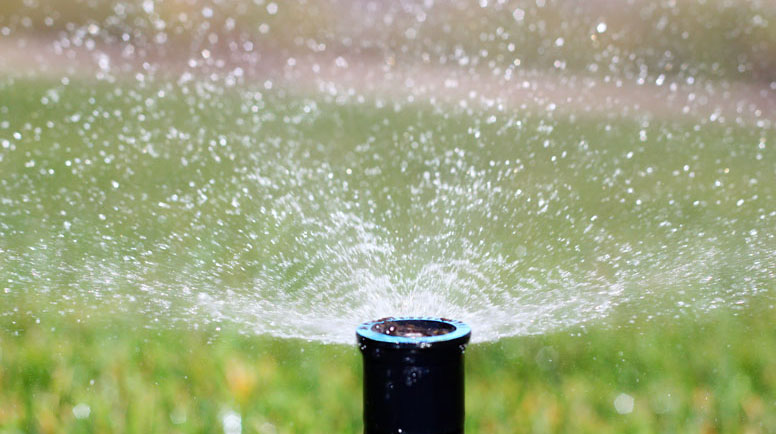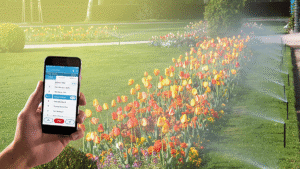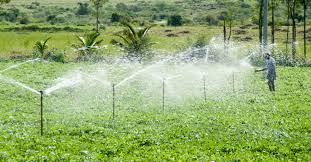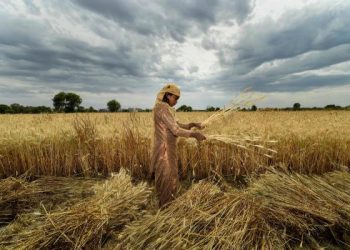Agriculture has been the backbone of human civilization for centuries. The rise of technology and advancements in irrigation systems has brought about significant changes to the way farmers grow crops. With the increasing global population, the demand for food production is at an all-time high, which is putting pressure on the limited water resources available. The need for efficient and effective water management systems has become more pressing than ever before.
Smart Irrigation Systems
Smart irrigation systems are automated systems that use advanced technologies, such as sensors and weather forecasts, to control and manage the irrigation process. These systems are designed to provide crops with the right amount of water at the right time, ensuring that they receive the necessary nutrients and water to grow to their full potential.

The main advantage of smart irrigation systems is their ability to conserve water, as they use only the required amount of water for each crop. This helps to reduce water waste and lower water bills for farmers, which is especially important in regions where water is scarce or expensive.
Furthermore, smart irrigation systems can be programmed to adjust the amount of water delivered to crops based on their needs, which means that crops receive the exact amount of water they require, without any excess.
Smart irrigation systems can be controlled manually, or they can be programmed to work automatically, using sensors to monitor the soil moisture levels, weather patterns, and other factors that affect the growth of crops. This allows farmers to make informed decisions about how much water to use when to use it, and how to distribute it, helping to optimize the use of water resources and maximize crop yields.
Benefits of Smart Irrigation Systems
Smart irrigation systems have a number of benefits that make them an ideal choice for farmers. Here are some of the most notable benefits:
- Increased Water Efficiency: Smart irrigation systems are designed to conserve water, using only the required amount of water for each crop. This helps to reduce water waste, lower water bills, and conserve water resources.
- Increased Crop Yields: By providing crops with the right amount of water at the right time, smart irrigation systems help to maximize crop yields and improve the overall quality of crops.
- Improved Soil Health: By reducing water waste, smart irrigation systems help to improve the health of the soil, as excess water can cause soil degradation and lead to other environmental problems.
- Easy to Control: Smart irrigation can be controlled manually, or it can be programmed to work automatically, using sensors to monitor the soil moisture levels, weather patterns, and other factors that affect the growth of crops.
- Cost-Effective: Smart irrigation is cost-effective in the long run, as they help to reduce water waste, lower water bills, and improve the overall quality of crops.
Types of Smart Irrigation Systems
There are several types of smart irrigation systems available, each of which has its own unique features and benefits. Here are some of the most commonly used smart irrigation systems:

- Drip Irrigation Systems: Drip irrigation is designed to deliver water directly to the roots of crops, where it is most needed. This helps to conserve water, as it reduces the amount of water that is lost to evaporation, and it also helps to improve crop yields, as the water is delivered directly to the roots of the crops.
- Sprinkler Irrigation Systems: Sprinkler irrigation systems are designed to deliver water to crops using a network of sprinklers. This type of system is ideal for large fields, as it allows for more even distribution of water, helping to ensure that all crops receive an adequate amount of water. Additionally, sprinkler irrigation systems can be programmed to adjust the amount of water they deliver based on the needs of the crops, which helps to conserve water and improve crop yields.
- Surface Irrigation Systems: Surface irrigation are designed to deliver water to crops by spreading it evenly over the surface of the fields. This type of system is ideal for crops that are grown in low-lying areas, as it helps to prevent water from being lost to evaporation
- Subsurface Irrigation Systems: Subsurface irrigation is designed to deliver water to crops by using underground pipes. This type of system is ideal for crops that are grown in areas with high temperatures, as it helps to prevent water from being lost to evaporation, and it also helps to improve crop yields, as the water is delivered directly to the roots of the crops.
Conclusion
In conclusion, smart irrigation systems are an important tool for farmers who are looking to conserve water, reduce water waste, and maximize crop yields. These systems use advanced technologies, such as sensors and weather forecasts, to control and manage the irrigation process, helping to ensure that crops receive the right amount of water at the right time.
Additionally, smart irrigation systems can be controlled manually, or they can be programmed to work automatically, using sensors to monitor the soil moisture levels, weather patterns, and other factors that affect the growth of crops. By using smart irrigation, farmers can conserve water resources, reduce water waste, and improve the overall quality of crops, making them an essential tool for anyone who is looking to optimize their water management strategies.










